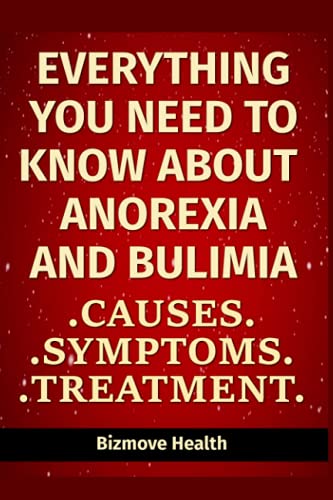Anorexia is an extremely common eating disorder, characterized by the fear of gaining weight, leading the affected individual to practice extreme food restriction. It has recently been classified as a type of body dysmorphic disorder, as in the affected individual’s eyes, they are overweight and need to lose some, even though that person is in fact already underweight.
It is a psychological disorder, affecting thousands of people around the world, but is more frequently diagnosed in women. There are actually two manifestations of anorexia nervosa, even though they both involve calorie restriction. They are:
Restrictive anorexia – individuals afflicted by this type of anorexia limit food consumed significantly over the course of the day, usually less than is required for maintenance of body weight. In theory, this is viewed as starving yourself, even though the affected person may view it as a form of discipline for achieving weight loss.
Binge then purge anorexia – individuals that display this type of anorexia do eat rather normally, but behind the scenes, they induce vomiting to empty the stomach of the food consumed before the calories can be absorbed (purging). This controversial practice gained popularity after reports surfaced in the 1980’s that models used it to help maintain their figure and weight.
Causes of Anorexia
Even though anorexia is primarily classified as a psychological disorder, often times it does not just happen by chance. Rather, a couple of factors need to be aligned before a positive diagnosis can be made. The following are considered contributing causes of anorexia nervosa
Environmental Factors
These include what the individual is actively exposed to on a day-to-day basis. For example, someone desirous of becoming a model might have heard that the only way to make it is by not eating anything and practicing the binge then purge approach.
Peer pressure is another environmental trigger that would force an individual to restrict food intake, after being told countless times that they are too fat.
Trauma, such as PTSD can also influence the manifestations of anorexia, though these are also overt psychological triggers.

Biological Factors
Anorexia has also been studied as having a possible genetic link, as it shares a strong semblance to being run in families, especially if a first-degree relative had previously been diagnosed as anorexic.
Other biological factors include abnormal hormone function, and that individuals inherent personality traits.
Psychological causes typically fall under biological factors as well, as these causes also have a strong association with abnormal neurotransmitter levels, familial history and in some cases hormonal disruption. OCD (obsessive-compulsive disorder) is another psychological disorder that is said to raise a person’s risk of exhibiting anorexic behavior as well, owing to an extremely restrictive diet or exercise practices.
Symptoms of Anorexia
Even though it is easy to assume that anyone that looks thinner than usual is anorexic, it is not that black-and-white when trying to arrive at a diagnosis. Rather, the presence of multiple indicative symptoms at once tend to point in the direction of anorexia, but it is important to know which symptoms to look for. Commonly observed signs/symptoms include:
Rapid Weight Loss
If an individual loses an immense amount of weight in a short period of time, causing them to look visibly malnourished, even though other factors are not indicative of hardship, the presence of other symptoms must be investigated. Be sure to rule out other possible comorbidities first, in order to have a reasonable suspicion that anorexia has developed.
Only Eating Alone
Many persons diagnosed with anorexia develop the odd practice of eating alone, especially when previously it was never exhibited. Thinking of the reason why it makes complete sense as the individual may not actually eat anything when hidden away from others, or if they do may follow it up with purging stomach contents.
Social Withdrawal
Usually occurs hand-in-hand with the previous sign, as social gatherings usually involve food and drinks of some sort. An individual may compulsively find excuses to avoid meeting up with friends or family, and that is because it would interfere with their food restriction.
Obsession With Nutritional Content
Anorexic persons do consume food, but in amounts that are extremely small, with very low caloric yield. Another hidden sign of anorexia is an extreme fixation with nutritional labels, and they must have caloric information before eating anything. If this manifests in a person that can already be considered underweight, it can be a reliable sign of anorexia.
Chronic Lethargy
As expected, following extreme calorie restriction energy levels plummet to the extent that the individual may always feel tired and sleepy. In such a state of chronic starvation, only basic metabolic processes are maintained, so expect to see very low motivation and drive, the sensation of always feeling cold (from poor circulation), and sleepiness regardless of how much the individual sleeps.
Poor Skin And Hair Health
Proteins, fats, water along with several vitamins and minerals help to ensure that the health of skin and hair is maintained. Following extreme food restriction, many critical nutrients may become deficient in the diet, which will make skin look pale, dry, and cause hair loss, thinning or the growth of very fine and thin hair.
Treatment of Anorexia
The first step in the effective management of anorexia and its related symptoms is for the affected individual to become aware of their diagnosis. Owing to the fact that many persons that would otherwise be diagnosed as anorexic avoid visiting the physician, and instead live in denial, it can be seen how important self-realization is.
Once that is achieved, a multifaceted approach works best. Common treatment modalities include:
Nutritional Interventions
Acute nutritional intervention may involve intravenous administration of critical substances to improve the health of that individual in a short period of time. Intravenous administration may be superior to food at this time, especially if therapy has not begun as yet and the individual still apprehensive of consuming food.
Medication
Though there is no medication to treat anorexia specifically, medication does exists to help manage associated symptoms. These may include antidepressants, anxiolytics, and in rare cases antipsychotics. Many other medications may also be prescribed depending on manifestations that may present at that time.
Therapy
Arguably, the most important interventional technique that will guarantee long-term recovery from anorexia is therapy, even if several types are utilized at once. For instance, it is not uncommon for the person to undergo individual therapy with a psychologist/psychiatrist, while simultaneously attending group sessions with other individuals that share the same diagnosis, and family therapy to educate loved ones how to deal with the disorder and to help with your recovery.
Anorexia – Summary
While anorexia is a serious disorder that could compromise your nutritional status and overall health, it is much more dangerous when hidden or if you attempt to take it on by yourself. Support plays a vital part in you overcoming the disorder and regaining the life you once had.
The prognosis is good, though a small percentage of people go on to develop binge eating disorders on the opposite end of the spectrum or relapse.
References
https://www.healthline.com/health/anorexia-nervosa
https://www.medicinenet.com/anorexia_nervosa/article.htm

Join the 7‑Day “Better Gut” Plan
Pop in your email and we’ll send Lesson 1 + the printable list.









